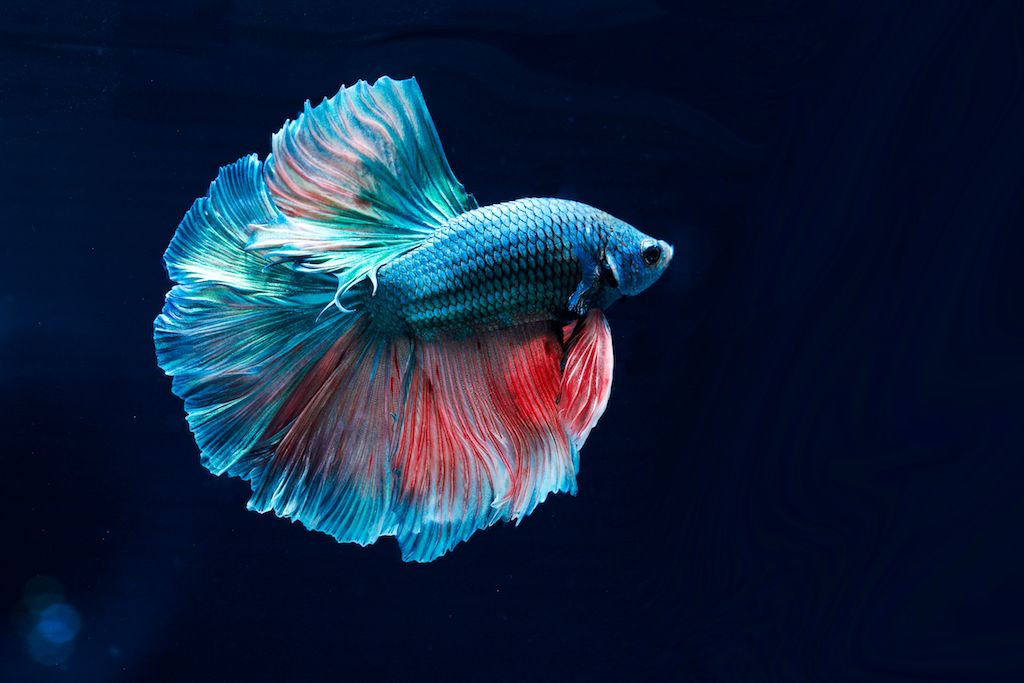The Ultimate Betta Fish Care Guide for New Family Pet Owners
The Ultimate Betta Fish Care Guide for New Family Pet Owners
Blog Article
Everything About Betta Fish: Recognizing Their Special Needs, Behavior, and the most effective Practices for Optimal Treatment
Recognizing the special requirements and habits of Betta fish is crucial for any kind of aquarist looking to offer optimum treatment. betta fish. As we discover these components further, the ramifications for both newbie and knowledgeable fish caretakers end up being significantly noticeable, increasing inquiries regarding just how best to fit these amazing fish in our homes.
Betta Fish Review
Although frequently admired for their dynamic shades and moving fins, Betta fish, scientifically referred to as Betta splendens, are complicated creatures that require certain care to thrive. Stemming from Southeast Asia, these freshwater fish are understood for their territorial nature and unique behaviors. Betta fish exhibit sex-related dimorphism, with males displaying more vibrant shades and longer fins than females.
Their aggressive propensities, especially among men, require careful factor to consider when real estate them. Bettas are frequently maintained in single-specimen containers to stop territorial disagreements. They can exist side-by-side quietly with certain suitable varieties in larger community containers, provided the setting satisfies their demands.

To make sure ideal care, aquarists have to recognize their one-of-a-kind behavioral traits, dietary needs, and environment needs. betta fish. With proper focus, Betta fish can show their lively characters and prosper in a well-kept fish tank setting
Natural Environment and Setting
Betta fish thrive in a varied variety of natural environments, mostly located in the superficial waters of Southeast Asia, consisting of rice paddies, swamps, and slow-moving streams. These settings are identified by warm temperatures, commonly in between 75 ° F and 82 ° F(24 ° C and 28 ° C ), and a pH degree ranging from 6.5 to 7.5, which is perfect for their health and wellness and well-being.
In their natural surroundings, Betta fish are accustomed to thick plant life, providing both shelter and breeding grounds. The existence of plants such as floating water lilies and thick grasses not only provides protection from predators but likewise adds to the oxygenation of the water, which is crucial for their breathing needs. Additionally, these atmospheres typically have areas of still water, permitting Betta fish to display their natural behaviors such as bubble nesting.
Comprehending the all-natural environment of Betta fish is important for aquarium fanatics. Reproducing these conditions-- with water temperature, pH balance, and the addition of online plants-- can significantly boost the total health and wellness and durability of these fascinating fish, ensuring they flourish in a home aquarium setup.
Social Habits and Interactions
Recognizing the social behavior and interactions of Betta fish is crucial for successful aquarium monitoring. Betta fish, or Siamese fighting fish, are recognized for their distinct behavior traits, characterized largely by territoriality and hostility.
Alternatively, female Bettas exhibit less aggressive actions and can exist side-by-side in teams, known as sororities, if presented appropriately. It is vital to check their interactions very closely, as power structure and prominence can lead to conflicts. Comprehending the dynamics within a Betta neighborhood is important; establishing concealing spots and making certain adequate space can alleviate aggressiveness.
Furthermore, Betta fish next might additionally show inquisitiveness and social actions towards various other varieties. While they can exist side-by-side with specific non-aggressive tank companions, it is vital to choose suitable varieties to prevent stress and anxiety and hostility. Generally, acknowledging these social communications is key to cultivating a harmonious aquarium setting for Betta fish.
Necessary Care Guidelines
Offering correct care for Betta fish is vital to their health and well-being. To make certain a thriving setting, it is important to keep optimum water problems. The water temperature ought to be kept in between 76 ° F and 82 ° F(24 ° C to 28 ° C), while pH degrees should vary from 6.5 look at this now to 7.5. Routine water modifications-- around 25% regular-- assistance maintain water quality.
Betta fish require a suitable container size; a minimum of 5 gallons is advised to supply ample area for swimming and hiding. Consist of decors and plants to develop a stimulating setting, however stay clear of sharp items that can damage their fragile fins.

Last but not least, make certain the container is equipped with a filter to maintain the water tidy, but use a gentle filter to avoid solid page currents that can emphasize the fish. By complying with these necessary care guidelines, owners can promote a healthy and vibrant Betta fish.
Common Wellness Issues and Solutions
In the care of Betta fish, awareness of usual health and wellness problems is vital for preserving their health. To deal with fin rot, boost water conditions and take into consideration utilizing a broad-spectrum antibiotic.
One more usual condition is ich, a parasitical infection defined by white spots on the fish's body (betta fish). Therapy involves enhancing water temperature and including aquarium salt to the storage tank, as this can aid eliminate the parasite
Swim bladder disorder is also frequently observed, resulting in buoyancy troubles. This problem may occur from overfeeding or irregularity. A fasting duration of 24-48 hours, followed by a diet of blanched peas, can give relief.
Last but not least, bettas may experience from velour illness, indicated by a gold dust-like look on their skin. Treatment normally calls for medicine specifically made for exterior parasites, alongside improved tank health.
Routine tracking of water parameters, keeping a clean setting, and providing a balanced diet are vital preventive actions. By resolving these health issues quickly, Betta fish can lead healthier, more vibrant lives.
Conclusion
In summary, successful betta fish treatment calls for an understanding of their one-of-a-kind demands and habits. Regular monitoring of health and water top quality, along with a well balanced diet regimen, adds to the long life and vibrancy of betta fish.
Report this page